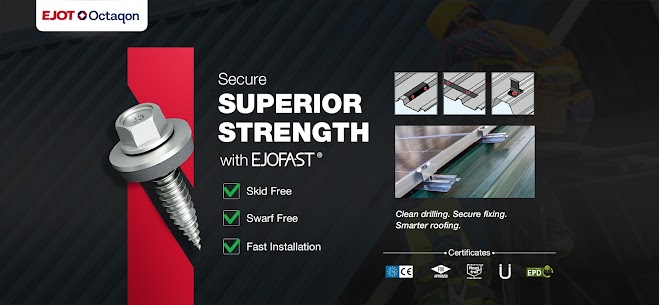When it comes to fastening solutions, choosing the right screw type can make a big difference in performance, efficiency, and durability. Among the most widely used options are self-tapping screws and machine screws. While they may look similar at first glance, their structure, applications, and benefits are quite different. Understanding these differences helps you pick the right one for your project, whether you are working with wood, plastic, or metal.
What Are Self-Tapping Screws?
Self-tapping screws are designed to cut their own threads as they are driven into a material. Unlike regular screws that require a pre-drilled hole, these can create their own path, which makes them highly efficient and time-saving. They usually have sharp tips and specially designed threads that allow them to penetrate softer materials with ease.
These screws are particularly useful in wood, plastic, and thin sheet metals. For example, a self thread screw can be used in furniture assembly or household repairs, while self tapping metal screws are effective in attaching lightweight metal sheets. The biggest benefit here is convenience—you don’t need extra tools or additional drilling, which makes the installation process quick and straightforward.
What Are Machine Screws?
Machine screws, in contrast, are designed for precision and strength. They feature a uniform diameter throughout their length and must be paired with pre-drilled and tapped holes or nuts. Made from tougher materials like steel or stainless steel, they provide a secure and reliable fastening solution.
These screws are commonly used in industries such as automotive, construction, and electronics. Since they fit into pre-threaded holes, they offer excellent alignment and holding power. Machine screws also come in a variety of head styles, including flat, round, and hex, making them versatile for different applications. The main drawback, however, is that installation can take more time because drilling holes is an extra step.
Key Differences Between the Two
The most noticeable difference between self-tapping screws and machine screws is how they are installed. Self-tapping screws eliminate the need for pre-drilling, making them faster and more convenient for softer materials. Machine screws, on the other hand, require precision drilling but offer a stronger, more secure hold in harder materials.
Self-tapping screws are typically chosen for quick assembly tasks, lightweight construction, or DIY projects. Machine screws are preferred for heavy-duty applications that demand strength, alignment, and long-term reliability. Cost can also be a factor—self-tapping screws are generally more affordable because they cut down on extra labor, while machine screws may increase costs due to additional steps in installation.
Advantages of Self-Tapping Screws
One of the main benefits of self-tapping screws is time efficiency. Since no pre-drilling is needed, they allow for quick assembly and reduce overall labor. They are easy to use with basic tools like screwdrivers or drills, making them popular for both professionals and homeowners.
Another advantage is their versatility. From plastic casings in electronics to wooden furniture and thin sheet metals, these screws adapt well to different materials. The threads they form also provide reliable pullout resistance, which means they hold firmly in place. Whether you’re using a self thread screw or self tapping metal screws, the results are usually secure and durable enough for general applications.
Advantages of Machine Screws
Machine screws are known for their durability and precision. Because they are used in pre-tapped holes or with nuts, they ensure a very secure fit that resists loosening even under vibration or heavy stress. This makes them ideal for industrial and automotive use, where reliability is critical.
They are also available in many head designs, allowing you to select the best option for your project’s needs. While installation may take more time, the end result is a strong and stable connection, especially in harder materials like metal and alloys.
Which Screw Should You Choose?
The choice between self-tapping screws and machine screws depends largely on the material you’re working with and the demands of the project. If you need quick, simple, and efficient fastening for wood, plastic, or light metal, self-tapping screws are the way to go. For projects that require strength, precision, and stability in metals or heavy-duty applications, machine screws are the better option.
Conclusion
Both self-tapping screws and machine screws have their own strengths and applications. Self-tapping screws, including options like self thread screw and self tapping metal screws, are quick, versatile, and cost-effective. Machine screws, while requiring more effort during installation, deliver unmatched strength and precision in demanding environments.
The key is to match the screw to the material and application. With the right choice, your projects will not only be easier to complete but will also last longer and perform better. Trusted brands like Ejot Octaqon offer a wide range of fastening solutions, ensuring you always have the right screw for the job.





Comments